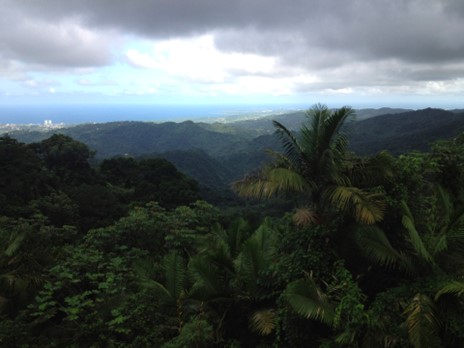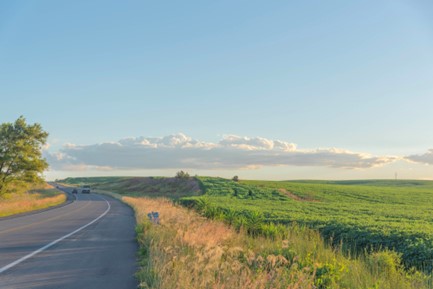ISLP recognizes the powerful and vital role that civil society plays in advocating for greater action in addressing the climate emergency. As the 27th UN climate conference (COP27) proceeds in Sharm El-Sheikh, Egypt, we highlight below some of ISLP’s civil society partners whose goal is to conserve a crucial part of the world’s life support system: the Amazon rainforest. Over the past three years and with grant support from the Gordon & Betty Moore Foundation’s Andes-Amazon Initiative (the Foundation), ISLP has mobilized pro bono legal support to the Foundation’s civil society grantees in Brazil, Colombia, and Peru that work to promote the best social and environmental standards for infrastructure development projects that might otherwise result in the deforestation of strategic areas of this critical biome.

George Grimm Howell, Rainforest View, CC0 1.0
Center for Climate Crime Analysis (CCCA) (Brazil, Colombia, and Peru)
The CCCA supports and scales up enforcement actions, litigation, and advocacy against illegal activities that contribute to climate change. Combining the power of law, data, and analysis, CCCA triggers environmental cases connected with other violations of human rights, corruption and consumer rights. To do so, it cooperates with networks of partners to collect information, produces high-quality data, carries out legal and forensic analysis, and shares case files with stakeholders to support their action. The Amazon Program of CCCA is currently focused on Brazil, Colombia, and Peru, with different projects on the main drivers of illegal deforestation—such as cattle, timber, and palm oil—and their supply chains and financiers. This work has supported legal and advocacy action in France, the Netherlands, Switzerland, the United Kingdom, the United States, and Brazil, among others, connected to the commercial and financial incentives that drive illegal deforestation in the Amazon.
Climate Policy Initiative (CPI) (Brazil)
CPI is an analysis and advisory organization with deep expertise in finance and environmental policy. Its mission is to help governments, businesses, and financial institutions drive economic growth while addressing climate change in order to build a sustainable, resilient, and inclusive global economy. One of CPI’s current areas of work is supporting sustainable infrastructure, and in particular how infrastructure development is related to land use and property rights. Land transport infrastructure is one of the drivers of deforestation in the Amazon, and reversing the link between infrastructure and deforestation is critical. With this in mind, CPI has put together a roadmap for sustainable infrastructure in the Amazon. The roadmap is based on three pillars: anticipating socio-environmental analysis in the decision-making process of public administrators; ensuring the quality of socio-environmental studies; and transparency.

Photo courtesy of CPI
Derecho Ambiente y Recursos Naturales (DAR) (Peru)
DAR monitors socio-environmental standards and prior consultation related to infrastructure projects, as well as regulations that affect Peru’s National Environment Impact Assessment System, which is is a coordinated system for the identification, prevention, supervision and early correction of negative environmental impacts. DAR also advocates for transparency in the extractive industries and better environmental conditions in foreign investments, with the goal of supporting public decisions that prioritize life, health, rights, and care for the environment from the earliest stages of project planning.
Fundación para la Conservación y el Desarrollo Sostenible (FCDS) (Bolivia, Ecuador, Colombia, and Peru)
The FCDS contributes to sustainable and equitable economic development, mainly in rural areas, in order to conserve both the natural environment and the social characteristics of local populations. FCDS work in the Amazon Basin is mainly in Colombia and Peru, along with some projects in Venezuela, Ecuador, and other countries in Central America. FCDS work areas include sustainable use of the forest; sector analysis and political advocacy; strategic communication; monitoring of the drivers of change in land use; and the promotion and implementation of innovative good practices guidelines, such as the Green Road Infrastructure Guidelines.
